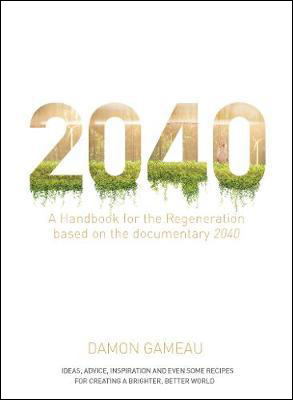These forthcoming books address climate change from a variety of angles.

2040: A Handbook for the Regeneration
This companion volume to an eponymous documentary film details solutions aimed at slowing climate change and interviews with children from across the world about the issues faced by the planet. “I figured the first thing I should do when imagining a better future for our daughter is consult the generation that would be sharing it with her,” Gameau writes.

Apocalypse Never
Shellenberger, an environmental activist and nuclear power advocate, argues that while climate change is real, warnings about the crisis are more dire than what the science bears out. “I’d been thinking about a book like this for a while,” says Harper v-p Eric Nelson, “because so many top science reporters off the record will tell you that the global warming story is very different than the way they cover it in their publications.” In Shellenberger’s view, Nelson says, most of the earth’s population will be able to weather a couple of meters of sea rising, while those who will be most affected—people in certain regions of India and China—need greater investment in infrastructure, rather than in renewable energy.

The Case for Climate Capitalism
A venture capitalist makes a “strong, well-reasoned argument for the left and right to work together for the common good,” PW’s review said. “Rand looks at how the current ideological impasse arose, warning that adherence to dogmas—either staunchly pro– or anti–free market—will prevent building the new economy that might solve the problem.”

The Citizen’s Guide to Climate Success
Jaccard, a Canadian expert on sustainable energy, draws on his experience working with governments throughout the world on climate policy to help readers identify viable solutions that will slow climate change. Jaccard also rates political leaders’ commitment to the issue, and argues for more affordable access to renewables in developing countries.

False Alarm
Drawing on a background in statistics and public policy, Lomborg makes the case that radical reduction of fossil fuel use will cause more destruction than the earth’s warming will. “Basic has a long tradition of publishing books that run counter to the conventional wisdom,” says v-p and publisher Lara Heimert, “so I was intrigued by his argument that our current approaches to addressing climate change may be making the world worse, not better. Slower growth—particularly in the developing world—will cause far more misery over the coming century than climate change will.”

A Field Guide to Climate Anxiety
Ray’s action plan for what she calls the climate generation, those born between 1990 and 2000, begins with a series of “vision-change-action” exercises derived from her college environmental studies courses. She asks her students, and her readers, to consider their future through intersecting concerns about the climate and social justice: “What needs to happen around you, to make you feel you have been successful in your efforts to flourish and to improve the lives of others?”

Grassroots Rising
Cummins, cofounder of the Organic Consumers Association, which advocates for organic farming, focuses on the concept of regeneration: “a rapidly spreading, carbon-sequestering, ecologically restorative, technologically innovative, forward-thinking worldview that takes us well beyond the now unfortunately outdated 20th-century notions of sustainability,” as he describes it in the book.

Hacking Planet Earth
Kostigen reports on a range of projects currently in development that aim to stave off the devastation of the climate crisis—some involving technology from water-generating lasers, others proposing umbrellas placed in outer space—compiling what PW’s review called an “intriguing overview of what science and engineering could do to help keep the planet livable.”

How to Prepare for Climate Change
The TV journalist, whose three Pogue’s Basics books have sold 130,000 print copies, suggest ways that those with the means to plan ahead can mitigate catastrophe. “People want to know, Should I move? How do I climate-proof my house?” says Simon & Schuster v-p and executive editor Priscilla Painton. Like other authors, Pogue emphasizes that poorer people will “bear the brunt of the chaos,” Painton says, while offering advice for “individuals looking to make tough choices.”

Notes from an Apocalypse
With epigraphs from Greta Thunberg and Annie Dillard, O’Connell (To Be a Machine) sets out on a “bleakly comic tour of doomsday ideologies,” according to PW’s review, including visits with a South Dakota bunker dealer, Mars-colonization advocates, and the one-percent preppers of New Zealand.

Winning the Green New Deal
Prakash is cofounder of Sunrise, a youth-led organization dedicated to achieving congressional passage of the Green New Deal, and coeditor Girgenti serves on its board. Contributors including journalists Bill McKibben and David Wallace-Wells, and climate justice advocate Colette Pichon Battle, write about concerns faced across the country, and how they can be addressed.








